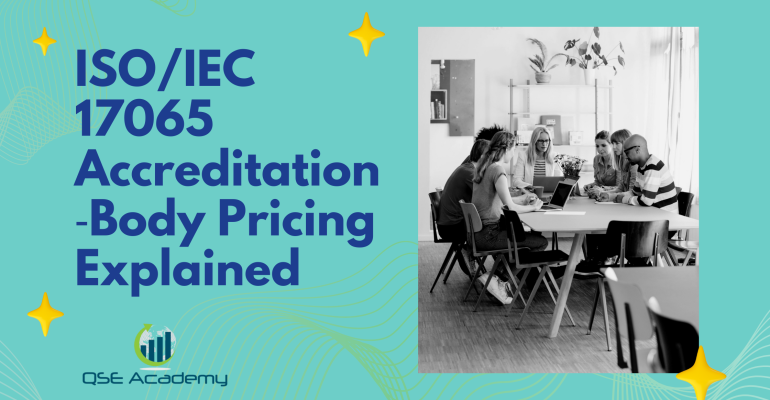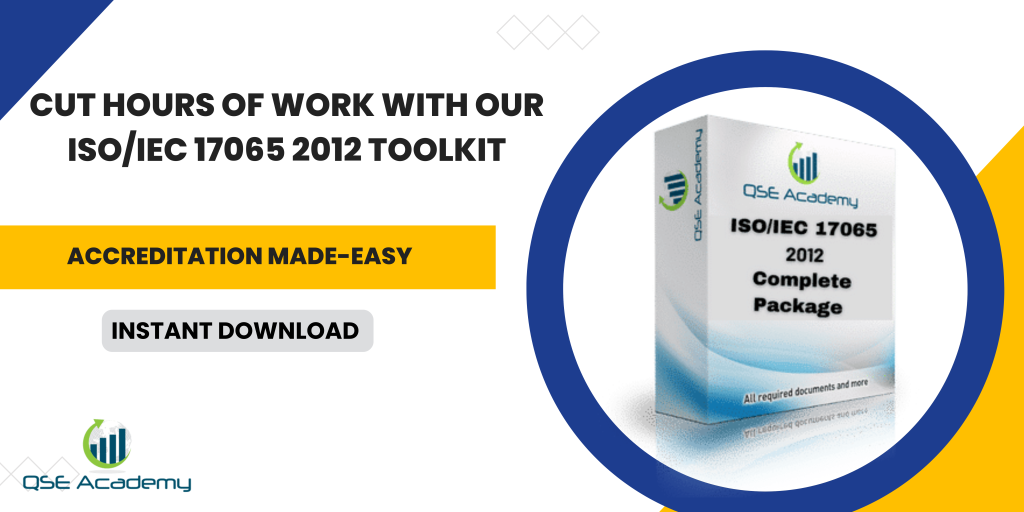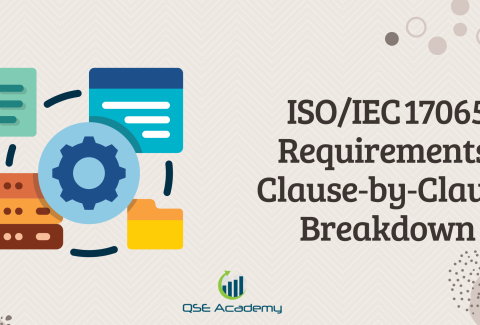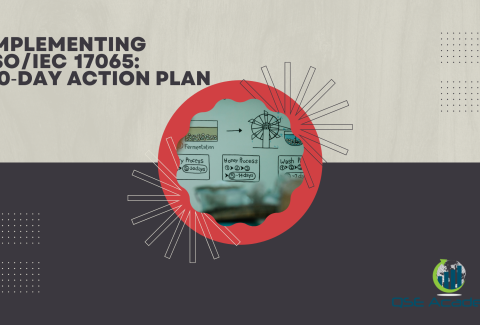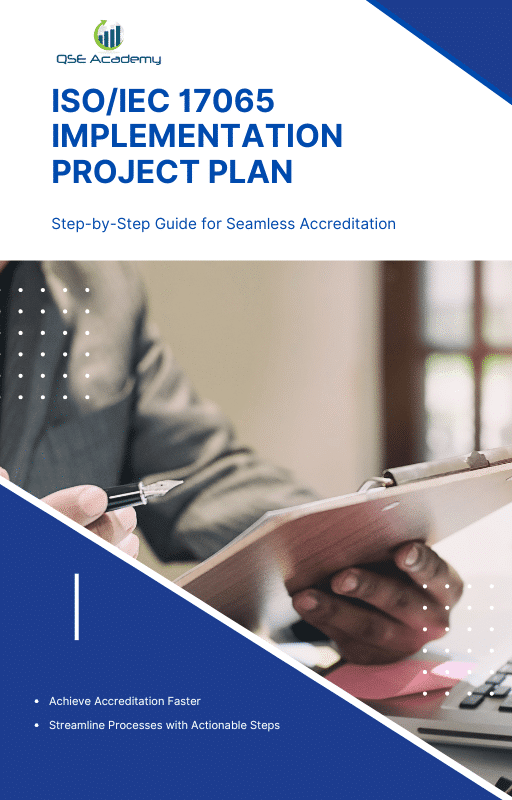ISO/IEC 17065 Accreditation‑Body Pricing Explained
Understanding ISO/IEC 17065 Accreditation-Body Pricing
Here’s what I’ve noticed over the years working with certification bodies and product-certification teams: pricing always becomes a stress point long before the accreditation audit begins. You look at quotations from three different accreditation bodies, and none of them match. One is double the price. One is vague. One doesn’t explain man-days at all. And you’re left trying to guess whether you’re overpaying or missing something critical.
My goal here is simple—give you a clear picture of how accreditation-body pricing works, what drives the numbers up or down, and how you can avoid unnecessary costs. You’ll walk away knowing what fees are mandatory, which ones are negotiable, and how to budget realistically without unpleasant surprises at the end.
Key Cost Components in ISO/IEC 17065 Accreditation Fees
Let’s start with the basics, because these appear in every accreditation-body quotation, no matter the region.
1. Application Fees
These are your entry fees. They cover initial admin checks, pre-application reviews, and eligibility assessments. They’re usually non-refundable, so submit when you’re ready.
Pro Tip: Have at least your core documentation in place—scheme document, impartiality policy, organizational structure, and procedures. Weak documentation triggers re-check fees.
2. Desktop/Document Review Fees
Accreditation bodies often underestimate how long this takes. If your documentation is well-organized, assessors spend less time reading. That means fewer billed hours.
In my experience, a strong document-control system saves anywhere from 1–3 man-days during review.
3. On-site Assessment Man-Days
This is the most significant part of your cost. Man-days depend on:
- number of schemes
- complexity of products
- number of sites
- use of subcontractors
- volume of certifications
If you offer certification for complex or high-risk products—fire protection, medical devices, electrical goods—expect more man-days.
Common Mistake: Over-describing your scope. “We certify all food products” sounds impressive but triggers unnecessary audit time.
4. Witness Assessments
If you’re new, you need witnessing. More schemes mean more witnessing. Each witness audit requires:
- assessor travel
- assessor man-days
- documentation review
I once helped a client who needed two witness events for one scheme because the test reports were incomplete. That double billing hurt.
5. Travel & Logistics
This is where costs balloon if you’re in a remote region. Flights, per diem, hotels, local transport—some ABs bill actual costs; others use flat rates.
Pro Tip: Request remote document review to reduce travel days.
6. Annual Fees
After accreditation, you pay yearly surveillance fees. They vary by AB, but they often include:
- surveillance audits
- scheme updates review
- admin costs
- maintaining your listing on the AB website
Budget for these from day one.
 How Accreditation Bodies Calculate Man-Days
How Accreditation Bodies Calculate Man-Days
Before you compare quotations, it’s important to understand how ABs arrive at their numbers. Man-days are not random—they follow IAF MD guidelines and AB internal policies.
1. Scope Complexity
High-risk products = high man-days. Low-risk commodities = reduced man-days.
2. Number of Schemes
More schemes mean more procedures, more evaluations, more records—this extends assessment time.
3. Staff Competence & Assessor Availability
If your scope requires a highly specialized assessor (e.g., electrical safety, hazardous goods), pricing increases because experts cost more.
Here’s what I’ve seen:
Specialist assessors often charge 30–60% higher daily rates.
4. Number of Sites
If you operate in multiple locations—even small ones—you’ll need additional assessment coverage.
Pro Tip: Consolidate operations under one primary site when possible.
5. Documentation Quality
A messy system leads to extra review days.
Common Pitfall: Submitting draft documents. ABs count every review cycle as billable time.
Hidden Costs in ISO/IEC 17065 Accreditation
This is where most organizations get blindsided. The initial quotation rarely includes everything.
1. Additional Document Review
If your AB needs a second or third review, those hours add up fast.
2. Re-Witnessing
If the witness audit doesn’t show conformity, you pay again. No AB absorbs this.
3. Scheme Amendments
Any change you introduce—new product category, new testing method, new subgroup—requires review fees.
4. Specialist Assessor Fees
These are rarely included in initial quotations.
5. Weekend/Holiday Rates
Some ABs add surcharges if your team or client prefers weekend witnessing.
Anecdote:
A certification body in the Middle East asked for a weekend witness because the facility only operated Friday–Saturday. They ended up paying a 50% weekend surcharge.
Regional Price Differences: EU vs. US vs. GCC vs. ASEAN vs. Africa
Pricing varies significantly around the world. Let me break down what I see most often.
1. EU Accreditation Bodies
Rates are structured and predictable. But travel costs within EU can add up, especially when assessors come from other member states.
2. US Accreditation Bodies
Very technical scopes may require senior assessors. That pushes costs up. But the US market offers good consistency and responsiveness.
3. GCC Region
Travel costs spike here. Assessors often come from Europe or Asia. Per-diem rates are higher, too.
4. ASEAN Region
Costs vary widely. Some local ABs offer lower base fees, but assessor availability delays projects.
5. Africa
Travel is the biggest factor. Logistics sometimes cost more than man-days.
Pro Tip: Request a hybrid audit structure—remote review + concentrated onsite days.
Budget Planning & Cost Optimization Strategies
If you plan well, you can significantly reduce your total cost.
1. Set Internal Timelines
Delays trigger re-review fees. Stick to one version of your documentation.
2. Consolidate Witnessing
Plan witnessing events for multiple products in a single visit.
3. Keep Documentation Clean
Assessors move faster through structured documentation. That reduces billed hours.
4. Avoid Scope Creep
Adding schemes mid-process leads to re-quoting and extra assessment days.
What I’ve seen:
One client added five new product categories during the application. Their man-days doubled instantly.
Choosing the Right Accreditation Body: Cost vs. Value
Price matters, but value matters more.
1. Assessor Expertise
A good assessor saves you time, stress, and costly mistakes.
2. Turnaround Speed
Accreditation shouldn’t take 12–18 months unless your scope is very complex.
3. Market Recognition
Choose an AB with solid reputation in your region or sector.
4. Transparency in Quotation
Ask for itemized costs and man-day justification.
Pro Tip: Always request a breakdown per scheme, per activity, per assessor.
FAQs – ISO/IEC 17065 Accreditation Pricing
1. Why do accreditation bodies charge different rates?
Because each AB has its own tariff structure, assessor pool, regional logistics, and administrative overheads.
2. Can I negotiate pricing?
Yes, especially around man-day justification, travel arrangements, and remote reviews.
3. What’s the most common hidden cost?
Repeat witnessing and additional document-review cycles.
Conclusion: Your Clear Next Step
You now know exactly how pricing works, what drives the costs, and where most organizations get caught off guard. The key is preparation. Strong documentation, clear scope definition, and smart planning can reduce thousands of dollars in unnecessary man-days.
I’ve supported many certification bodies through pricing analysis, negotiation, and cost optimization. If you want guidance on estimating realistic accreditation costs—or need help reviewing your documentation before submitting—reach out and I’ll help you prepare strategically.
Melissa Lavaro is a seasoned ISO consultant and an enthusiastic advocate for quality management standards. With a rich experience in conducting audits and providing consultancy services, Melissa specializes in helping organizations implement and adapt to ISO standards. Her passion for quality management is evident in her hands-on approach and deep understanding of the regulatory frameworks. Melissa’s expertise and energetic commitment make her a sought-after consultant, dedicated to elevating organizational compliance and performance through practical, insightful guidance.

